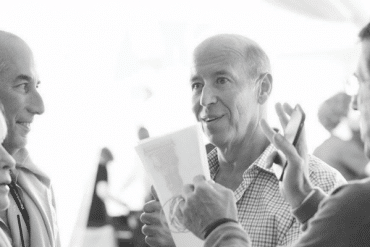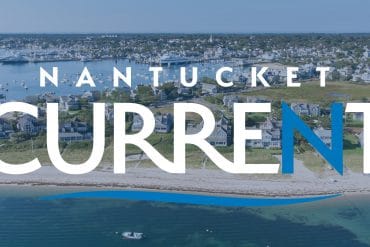Worcester Polytechnic Institute brings electrifying young minds to Nantucket.
Huddled around computers in their makeshift headquarters in ReMain’s Greenhound shuttle terminal, engineering students from Worcester Polytechnic Institute (WPI) are buzzing with intense focus. Seated in groups of four and five, they quietly pore over data, maps, graphs and case studies that detail complex problems facing the island today. As they murmur to one another, there’s an unmistakable air of productivity and industriousness in the room that makes one thing abundantly clear: These students are here to get stuff done.
 For nearly a decade, students have come to the island each fall as part of WPI’s Global Projects Program. Nantucket is one of forty locations dotting six continents where WPI juniors flex their engineering muscles to solve real-world problems. Since 2008, 152 students have tackled forty-six projects, including coastal erosion, affordable housing, museum studies, harbor pollution, alternative energy and disabled pedestrian access. By one conservative estimate, in the nearly ten years the program has been on Nantucket, WPI students have provided around $5 million in engineering services — completely free.
For nearly a decade, students have come to the island each fall as part of WPI’s Global Projects Program. Nantucket is one of forty locations dotting six continents where WPI juniors flex their engineering muscles to solve real-world problems. Since 2008, 152 students have tackled forty-six projects, including coastal erosion, affordable housing, museum studies, harbor pollution, alternative energy and disabled pedestrian access. By one conservative estimate, in the nearly ten years the program has been on Nantucket, WPI students have provided around $5 million in engineering services — completely free.
“While most of our students are studying engineering, the projects we do on Nantucket, and in most of our other centers, involve social problems and human needs,” says Dr. Richard Vaz, the director of WPI’s Center for Project-Based Learning. “We believe engineering and science students should understand how problems are related to their context and setting and how solutions should be responsive to the interests and needs of a particular community.”
What makes Nantucket unique for these students is that the solutions they come up with here — as opposed to big, bustling cities — have a high likelihood of being implemented. This year’s projects target some major infrastructure concerns that have emerged as the island’s population continues to swell during the summer months. For instance, in coordination with the town and ReMain Nantucket, students will assess novel approaches to the parking problem. They’ll identify and evaluate new technologies and parking management strategies that could be implemented. They’ll test drive smart phone apps used in cities like Chicago that ocate and reserve spaces and then assess how similar technologies could work on the island. They will then submit an inventory of options with a cost-benefit analysis for the town to consider.
 “Our primary goal is to provide students with a unique and effective learning experience that will have long-lasting impacts on the way they view the world, themselves and their profession,” says Professor Dominic Golding, who has served as WPI’s project director on Nantucket since its inception nearly a decade ago. “We try to create authentic, real-world projects with sponsoring organizations because we know that such project-based learning is the most effective approach to change student perspectives.” He adds, “We also want the projects to have long-lasting impacts in the communities in which they take place, although ultimately the largest impact that we will have as a university is what our students choose to do with their lives in the future.”
“Our primary goal is to provide students with a unique and effective learning experience that will have long-lasting impacts on the way they view the world, themselves and their profession,” says Professor Dominic Golding, who has served as WPI’s project director on Nantucket since its inception nearly a decade ago. “We try to create authentic, real-world projects with sponsoring organizations because we know that such project-based learning is the most effective approach to change student perspectives.” He adds, “We also want the projects to have long-lasting impacts in the communities in which they take place, although ultimately the largest impact that we will have as a university is what our students choose to do with their lives in the future.”
Dr. Golding points to his students’ continued work on alternative energy as one arena where they’ve made a significant impact. If the demands on energy continue to increase, the island will have to string a costly third power cable from the mainland. As part of an effort to thwart this third rail, the Nantucket Energy Office unveiled the SOLAR Rebate program in July of 2017 to promote the adoption of solar energy by residents. Lauren Sinatra, Nantucket’s chief energy officer, has enlisted the WPI students to analyze this program in hopes of promoting it. The students will gather case studies from solar users, review potential installations sites, recommend improvements to the rebate program and provide many other insights to improve the energy independence on the island.
 “Besides the project sponsors themselves, the island provides a variety of support,” says Dr. Golding. “Maria Mitchell has provided housing since the inception of the program. Harvey Young has graciously provided bicycles for faculty and students to use for free while we are on the island.” The professor also points to ReMain Nantucket for underwriting a number of the students’ activities as well as to town officers such as Gregg Tivnan for providing key logistical support on the island. “The WPI students bring eager minds to the projects they work on and do some much needed legwork,” says Melissa Philbrick, the executive director of ReMain Nantucket. “The students also create a welcome bustle of activity in the downtown.”
“Besides the project sponsors themselves, the island provides a variety of support,” says Dr. Golding. “Maria Mitchell has provided housing since the inception of the program. Harvey Young has graciously provided bicycles for faculty and students to use for free while we are on the island.” The professor also points to ReMain Nantucket for underwriting a number of the students’ activities as well as to town officers such as Gregg Tivnan for providing key logistical support on the island. “The WPI students bring eager minds to the projects they work on and do some much needed legwork,” says Melissa Philbrick, the executive director of ReMain Nantucket. “The students also create a welcome bustle of activity in the downtown.”
Yet despite the significant contributions WPI students have made to the Nantucket community over the last decade, the program continues to fly largely under the radar. Only when you stumble into one of their workspaces, or spot them checking solar panels or counting parking spaces around town, do you really see their gears at work. These are the bright minds of tomorrow bringing new ideas and expertise to Nantucket today.






